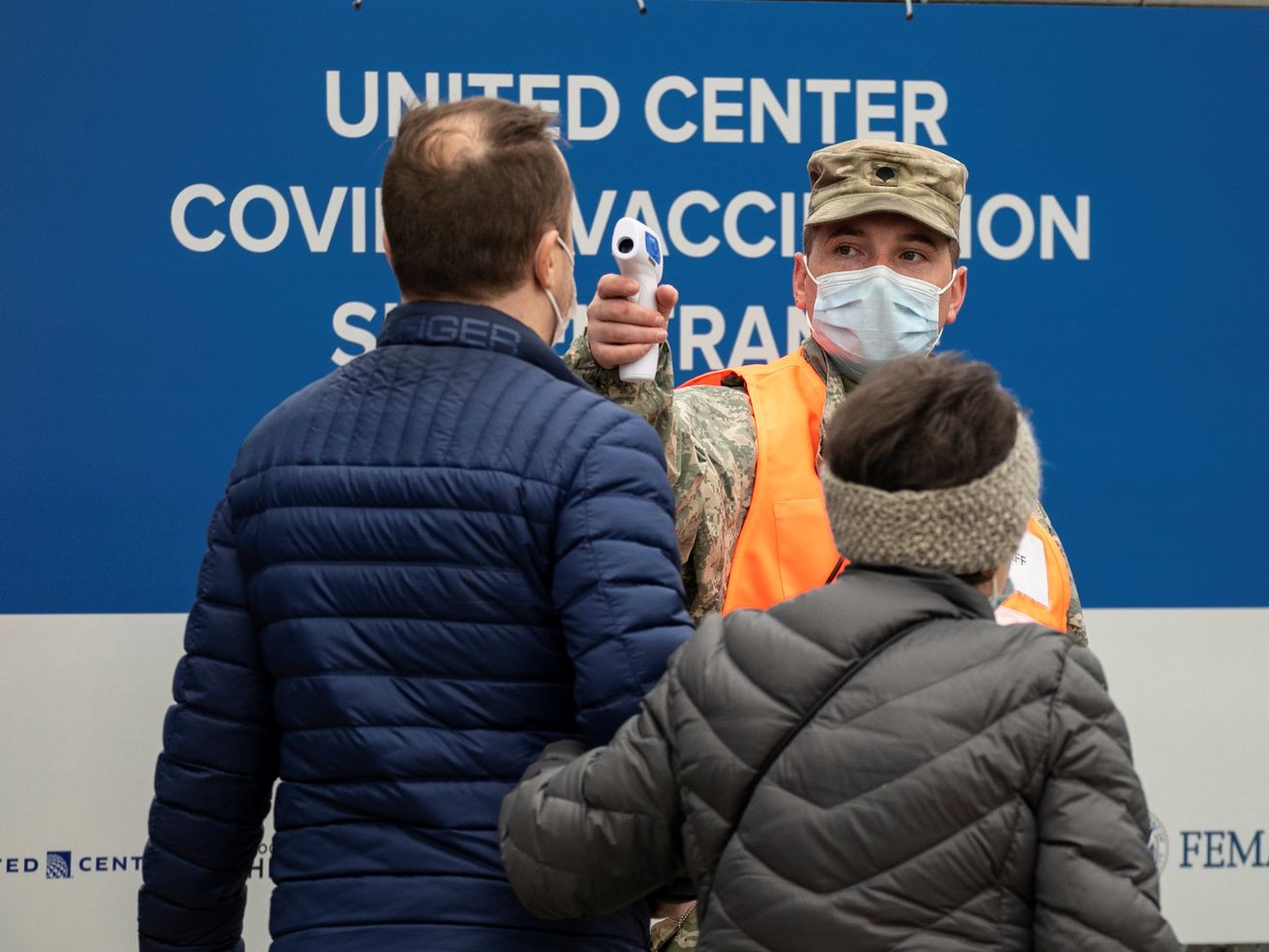
The city’s COVID-19 vaccine rollout remains on schedule, but there’s worry about the supply
Chicago’s restaurant and bar workers — excluding those with some underlying conditions and already inoculated — should start receiving COVID-19 vaccinations starting in April, but most will have to until May, according to the city’s top physician. Chicago Public Health Commissioner Dr. Allison Arwady told reporters on Wednesday afternoon that the city is on target to start taking appointments for Phase 1C — a group that includes service industry workers — on March 29.
Though the date remains a mile marker, those eligible in Phase 1C need to have patience, Arwady said. It will take some time for appointments to free up due to supply, and Chicago will be administering vaccines to residents throughout the summer. So far, Arwady said 10 percent of residents are fully vaccinated through two doses of the Pfizer or Moderna vaccine, or a single shot of Johnson & Johnson’s. It takes two weeks after receiving the final dose to be considered fully inoculated.
“We’re not at a point from our vaccination numbers where we’re ready to say COVID is over,” Arwady said.
This echoes what other doctors across the country have been saying about dining at restaurants. Safety measures need to remain in place, despite declining infection numbers.
Arwady remains concerned about vaccine supply, especially after hearing President Joe Biden say that all Americans should expect to be eligible for inoculations by May 1. Arwady now feels Biden’s comments are a sign that more shots will be available soon. The Food and Drug Administration should also soon approve the use of other vaccines which will help. The doctor hopes that the city can make vaccines available to all adults and start Phase 2 of its rollout by the president’s deadline.
The city also has plans for more mass vaccine sites beyond the one it set up at the United Center. Arwady said she anticipates that the effort to vaccinate residents against COVID-19 will soon feel similar to annual flu vaccine campaigns. The biggest obstacle won’t be supply, but convincing people that the shots are safe and worth making an appointment, she said. Physicians have already helped administer shots to those over 65 and other patients in high-risk groups. Arwady added that racial and community discrepancies have been erased thanks to the strategy of focusing on the most vulnerable. In a related comment, Mayor Lori Lightfoot said she was disappointed in hearing about the vaccine event that took place on March 10 at Trump Tower: “We just can’t have this happen again,” she said during Wednesday’s media briefing.
Additionally, the city intends to partner with employers to make vaccines available to workers. Those efforts won’t happen until May, Arwady said. Some Chicago restaurants have set up COVID-19 testing sites for service industry workers, so this could be an opportunity for a similar collaboration with vaccines.
Servers, bartenders, and cooks have seen the city gradually increase indoor dining capacity since January. Right now, Chicago has a 50-person, or 50 percent capacity, limit on customers inside restaurants or bars. Some in the service industry are frustrated seeing workers in food-related environments, such as grocery stores and breweries, be eligible for vaccines, while they’re asked to deal with disrespectful customers.
Given that Wednesday is St. Patrick’s Day, the city’s inspectors are keeping a close watch on bars. Arwady thanked bar workers for keeping customers safe over the traditionally packed pre-holiday weekend. Still, Arwady’s comments underscore a growing sentiment about the federal government’s pandemic failures, as Eater’s Restaurant Editor Hillary Dixler Canavan articulates when she writes how the responsibility of saving restaurants should have never been the public’s.